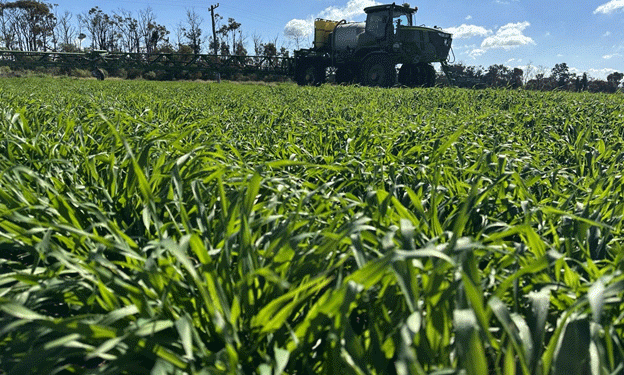Recent developments in Australia’s grain markets reflect a complex interplay of global influences and local conditions. Softening global grain values, combined with significant rainfall in South Australia and Victoria, have prompted increased market activity this week. Domestic consumers are actively securing new-crop coverage, driven by favorable pricing amidst regional weather patterns conducive to crop growth.
According to recent data, indicative prices for key grains in Australian dollars per tonne illustrate varying trends across regions and crop types. For instance, barley prices in Melbourne have shown resilience, while ASW wheat prices in Downs reflect fluctuations influenced by market dynamics and seasonal expectations. These price movements highlight the volatility and responsiveness of the Australian grain market to both local and international factors.
In the northern regions, growers are cautiously navigating new-crop positions amid softer values and ongoing market uncertainties. Despite consolidating seasonal conditions, trading activity has intensified as consumers hedge against future supply risks. Meanwhile, southern Australia’s recent rainfall has provided much-needed moisture for crop germination, signaling a positive turn for local farming communities.
As the financial year draws to a close, market participants are keenly observing price trends and supply dynamics. The impending end of free warehousing at GrainCorp by June 30 adds another layer of urgency for growers and traders to finalize contracts amidst evolving market conditions. The global context, including significant shifts in US futures and Russian wheat values, continues to exert downward pressure on grain values, influencing trading strategies and pricing negotiations domestically.
The current state of Australia’s grain markets underscores the resilience and adaptability of the agricultural sector in responding to global challenges and regional opportunities. As stakeholders navigate these dynamics, strategic decision-making and risk management remain crucial for ensuring sustainable profitability and supply stability in the grain industry.
Error




